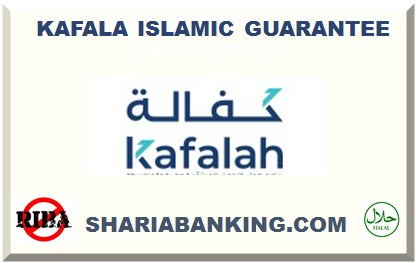
KAFALA ISLAMIC GUARANTEE 2024
KAFALA HALAL GUARANTEE
Kafala as Islamic guarantee in 2024 is defined by a guarantee or sponsorship system where one party, the guarantor (Kafil), agrees to undertake the financial obligations or debt of another party, the principal (Mukafal), in case of default, aligning with Shariah principles that emphasize mutual assistance and ethical financial practices.
Kafala as Islamic guarantee facilitates financial transactions and credit provision by providing a moral assurance to the lender that the debt will be honored, thereby enhancing trust and cooperation within the financial community without resorting to interest-based lending.
Under Kafala, the guarantor does not charge a fee for the guarantee, reflecting the Islamic finance principle of not profiting from loans, as earning money on the loan provided through interest (Riba) is prohibited in Islam.
The Kafala contract specifies the conditions under which the guarantor would need to fulfill the obligations, ensuring that all parties have a clear understanding of their responsibilities and the circumstances triggering the guarantee.
The Kafala as guarantee mechanism is widely used in various types of Islamic financing, including personal loans, business financing, and credit sales, providing a way to secure loans and other financial obligations in a Shariah-compliant manner.
The guarantor’s commitment in a Kafala arrangement is strictly financial, limited to the amount specified in the contract, ensuring that the guarantor is not unduly burdened beyond their capacity or beyond the agreed terms.
Kafala can be applied in both secured and unsecured loans, offering flexibility in its use across a wide range of financial products and services within Islamic finance, catering to the needs of different borrowers and financial institutions.
What types of Kafala guarantee are available with description?
-
Types of Kafala Guarantees in Islamic Finance
Kafala, or guarantee, in Islamic finance, plays a crucial role in facilitating transactions by providing a Shariah-compliant way to assure payment or performance. Here are the primary types of Kafala guarantees:
-
Kafala bi al-Mal (Financial Guarantee):
This type of Kafala involves a guarantor promising to fulfill the financial obligation of the principal debtor towards a third party. It's commonly used in loan agreements and financial transactions to provide security without involving interest-based collateral.
-
Kafala bi al-Nafs (Personal Guarantee):
In this form, the guarantor assures the performance of a certain action or duty by the principal. It's less about financial guarantees and more about ensuring the completion of tasks, duties, or responsibilities, aligning with Shariah principles of accountability and trust.
-
Debt Kafala:
Debt Kafala is specifically designed to guarantee the repayment of a debt. The guarantor commits to paying back the debt if the original debtor fails to do so, providing a safety net that encourages lending within Islamic financial principles.
-
Asset Kafala:
This guarantee focuses on assets rather than monetary debts. The guarantor ensures the safeguarding or delivery of a particular asset, making it relevant in leasing and sale-purchase agreements within Islamic finance.
-
Kafala bi al-Mal (Financial Guarantee):
-
How does the Kafala system affect migrant workers in the Middle East?
- It ties the legal residency and employment status of migrant workers directly to their employers, often leading to restrictions on their mobility and potential for exploitation.
- The system can sometimes result in workers facing difficult working conditions, limited freedom, and challenges in changing employment or leaving the country without the employer's consent.
HALAL MORTGAGE TAKAFUL INSURANCE STUDENT INSURANCE CAR INSURANCE ICELAND HOME INSURANCE REAL ESTATE INSURANCE LIFE INSURANCE BUSINESS INSURANCE TRAVEL INSURANCE HAJJ UMRAH INSURANCE FUNERAL INSURANCE MOSQUE INSURANCE AUSTRALIA INSURANCE GERMANY INSURANCE ISLAMIC CAR LOAN ISLAMIC MICROFINANCE WITHOUT INTEREST BUSINESS LOAN FOR WOMEN TAKAFUL MORTGAGE LOAN WITH POOR CREDIT ISLAMIC DEBT CONSOLIDATION DISABILITY LOAN STUDENT LOAN ISLAMIC LEASING LETTER OF CREDIT PERSONAL LOAN FOR STARTUP PRIVATE LOAN CROWDFUNDING CALCULATOR FOR WEDDING FOR EXPATRIATE ISLAMIC INSURANCE INDIA TAKAFUL ISLAMIC HEALTH INSURANCE USA TAKAFUL CANADA TAKAFUL UK TAKAFUL FARMER LOAN TAXI LOAN RAMADAN LOAN LIST OF ISLAMIC BANKS ALBANIA ALGERIA AUSTRALIA ISLAMIC COLLEGE SCHOLARSHIP BAHRAIN BANGLADESH BOSNIA-HERZEGOVINA BRUNEI CANADA CHINA DENMARK DJIBOUTI EGYPT ETHIOPA FRANCE INDONESIA IRAN IRAQ IVORY COAST JORDAN KAZAKHSTAN KENYA KUWAIT KYRGYZSTAN LEBANON LIBYA LUXEMBOURG MALAYSIA MALI MAURITANIA MOROCCO NETHERLANDS NIGERIA NORWAY FINLAND ISRAEL HONG-KONG GHANA RWANDA GAMBIA SIERRA-LEONE SOMALIA MYANMAR ANGOLA MAURITIUS OMAN PAKISTAN PALESTINE PHILIPPINES QATAR RUSSIA SAUDI-ARABIA SENEGAL SINGAPORE SRI-LANKA SUDAN SWITZERLAND SYRIA TAJIKISTAN TANZANIA CYPRUS JAPAN ARGENTINA BRAZIL AUSTRIA SOUTH KOREA MALDIVES WAKALAH WADIAH AMANAH SUKUK ISLAMIC CREDIT CARD WAAD ISLAMIC HEDGING MUSAWAMA MURABAHA QARD-UL-HASAN BAI-SALAM ISTISNA MUDARABAH IJARA IJARAH-THUMMA-AL-BA IJARAH-WA-IQTINA IJARA-MAWSOOFA-BI-AL-DHIMMA TAWARRUQ MUSHARAKA BAI-MUAJJAL-BAI-BITHAMAN-AJIL BAI AL INAH HAWALA KAFALAS RAHN THAILAND TUNISIA TÜRKIYE U.A.E UNITED-KINGDOM U.S.A UZBEKISTAN YEMEN AZERBAIJAN INDIA BELGIUM GERMANY IRELAND ITALY NEW-ZEALAND SPAIN SWEDEN BULGARIA KOSOVO SOUTH-AFRICA LONDON